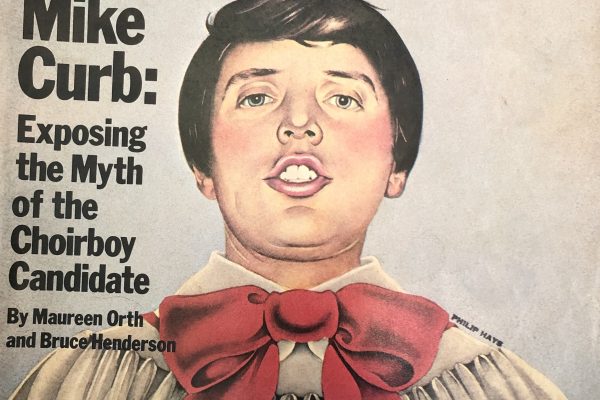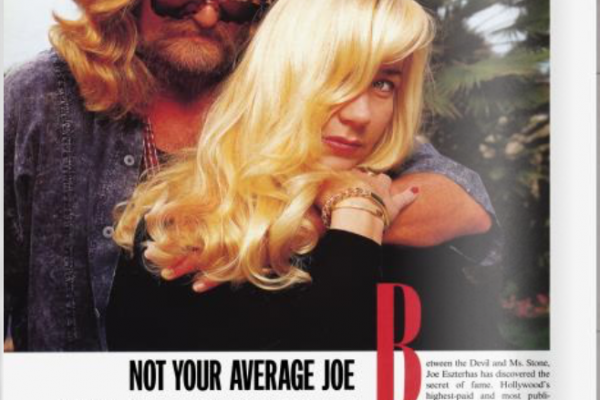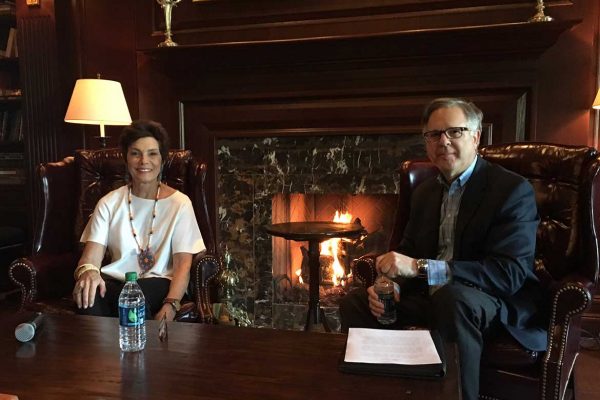Original Publication: Rolling Stone, March 16, 1975
Palo Alto, Calif. – The marathon of the decade began last June at the Whole Earth Catalog Demise Party, and it may never end. The Demise lasted all night at San Francicos’s Palace of Fine Arts Exploratorium, and when it was over Fred Moore, 29, identifying himself to the crowd simply as a “Human Being,” stuffed $14,905 into the back pocket of his faded jeans, climbed into the battered van where he was living with his three-year-old daughter and drove home to Palo Alto. Fred had won Whole Earth Catalog Editor Stewart Brand’s latest, cleverest resource tool game: Test Your Real Feelings Toward Bread.
Stewart’s flashy farewell gesture was to offer his original investment of $20,000 in the best-selling catalog to anyone or any good cause as long as the group as a whole reached consensus. Then he sat back to watch the crowd haggle, and haggle they did for nearly ten hours, consulting the I Ching, breathing and ssssssing in a Hog Farm Gong Bong, yelling screaming, sleeping . . . all to no avail.
From the beginning, Fred Moore consistently displayed his contempt towards the root of all evil. First he burned one of the two dollar bills that were his only money, and then at dawn, when nobody really wanted the money anymore, but didn’t want anyone else to have it either, he presented a petition saying people were more important than money and argued passionately not to give it to anyone. By this time the fund was down $5000 pocketed by partygoers long gone into the night, and the hardcore hagglers were reduced to 20. In sheer exhuastion they finally entrusted the remaining $15,000 to Moore until a committee could meet to discuss what to do next. It was a decision General Motors or the Ford Foundation could have been proud of.
Fred, who once served 17 months in prison for draft resistance, accepted the money but refused to have anything to do with banks – “They make war” – instead preferring to stash the prize in an unknown, “unsafe place,” he said. “We shouldn’t give money more value than it deserves, “ he said. So throughout the summer the money rested snugly in its unsafe place, and nobody, not Stewart Brand, nor anyone at Portola Institute – which publishes the catalog – knew where the money was. Only Fred knew and rumor had it he’d buried it.
Then suddenly last September, nearly four months after the Demise Party, Fred called the first meeting of the “Chrysalis Fund.”
“Think of it organically,” the letter of invitation read. “The tool money which launched the three years of the Whole Earth Catalog’s existence might be likened to the first stage in the life of a caterpillar. The Demise Party marks the beginning of the second stage – the chrysalis (cocoon of gold). This is the stage we are at . . . Eventually a butterfly may emerge.”
Now seven months and two meetings later, the Demise money has become a living-organic-recyclable-resources-tool in the best Whole Earth tradition, and the rules of the bread game are more or less established. Anyone who wants the money must come to the meetings and convince his fellow alternative culturati that he can best use the energy put forth by thousands of dollars. If he wins the Great Consensus he can have the money, without interest, for a short-term loan.
The meetings, called at the end of a loan period, are open to anyone with the stamina to put up with the theater involved, and go on for hours, veering from big-time corporate boardroom to learning-sharing workshop and usually end up with Esalen touchie-feelie. The atmosphere is one of earnest debate by people long on ideas but short of cash who are honestly seeking new ways to live with a “minimal dependence on the dollar system.”
Fred called the first meeting at an old farm in the Palo Alto hills, behind Stanford University. Cows mooed over the fence while 50 people passed jugs of organic apple juice around and waited for something to happen. After a couple of hours one of the men started quietly addressing the others about his recent visit to the Black Mesa Indians in New Mexico and the fight against strip mining on the Indians’ ancient burial grounds. He suggested the $15,000 be given no strings attached to the Black Mesa Defense Fund. A woman who drove up from Los Angeles needed a few thousand to run her alternative school, promising to pay back the money with profits realized from the sales of the school’s vegetable garden. A middle-aged man sought help for his weekly newspaper in the Sierra town of Quincy, but a newspaper is a profit-making venture, albeit in Quincy a slim one. Nobody said anything at the time, but everyone just knew that profits are one of the most blatant leftover vestiges of “the system” and somehow betray the ideals of the catalog, which has earned more than a million dollars for a non-profit corporation.
The group which finally received the money from the first meeting was Developing Environments, a part of Project One, the huge synergy warehouse in San Francisco that’s headquarters for more than 200 artists, filmmakers, architects, priests, a free school and a whole range of people seeking “an alternative urban environment.” They said they needed the $15,000 as front money for first and last month’s rent to start another warehouse, Project Two. DE promised to interact with the ghetto neighborhood where they hoped to locate and vowed to return the money within 90 days.
By sundown the group reached the sacrosanct State of Consensus, and celebrated with another Gong Bong, but Fred Moore made no move toward the “unsafe place” where the money was hidden. He began to relax, however, after two men who sensed his discomfort lifted him up on their shoulders and began solemnly passing Fred around the group in a circle above them, then lowered him and started massaging his arms, legs and temples.
Somewhat reassured, Fred arranged to meet the Developing Enviroments people at the Stanford Library to xerox an agreement which had been prepared by a self-appointed loan officer. Fred insisted that the money be counted “at least five times” before presenting DE $14,805 in the same crisp hundred dollar bills and one five that Stewart Brand offered the night of the Demise Party (an extra hundred disappeared) stuffed in an old brown envelope covered with cobwebs.
The Developing Environment people immediately put the money in a bank to earn interest. “On the scale Fred’s operating, you have no impact in rejecting banks,” said the DE man. “First you got to build up some power.” DE made sure that no single name appears on the fund’s account. All in the project are collectively responsible for it.
Last fall DE resumed negotiations for the lease of the second warehouse but could not complete them within the 90 day limit because they ran into an old establishment roadblock: mistrust of the alternative way. “During the last three months, we have been learning a great deal about human complexities of business tranactions and our own community trust and cooperation, “ said DE’s letter of invitation to the second meeting. “Through our dealings with realtors, bankers, brokers, buyers, and other businessmen, we have been confronted with mondern establishment’s lack of trust and at times feel victimized by it. In contrast we are developing a system based on trust and cooperation.
“It’s been quite an educational process.”
Even before DE’s 90 days were up, Fred, fearful the cocoon of gold aspects of Chrysalis would eventually take over, visited DE to check on the money they now felt he had no part of – it had been recylced to them. Nevertheless, with several tape machines recording the action. Fred presided at the meeting DE called January 22nd at the warehouse.
Only one man among the 60 or so present had a pure profit motive, and he again was middleaged. He wanted to start a ladybug business as an alternative to pesticides. There was also talk of a “Third World Warehouse” in the East Bay to be called Center For Environmental Symbiotics. DE wanted a 60 day extension on their loan, and Bay High School, a free high school in Berkeley needed $3,000 to bring their building up to fire code standards plus another $5,000 to buy a brake lathe machine for the school’s auto shop. That way, explained a teacher, the school would charge only $2.50 for a regular brake job, and the ensuing volume of business from the auto shop would generate enough money to pay back the loan.
As the teacher spoke, a young artist set up his paints and began rapidly sketching the whole scene in oils. Another deeply tanned, barefoot man sat crosslegged, carefully grinding grass (common lawn variety) with a pestle and stone. Then he poured the remains into a glass containing a nauseous looking green mixture, drank it and urged everyone else to do so.
It took the meeting six hours of tortuous foreplay to have a Consensus – first to extend DE’s loan for 60 days, then to give Bay High School half the money for three to six months after that. The other half went to a computer group in Project One for 30 days if they needed it.
The only sore losers were a physicist and designer promoting an untested prototype of modular housing which featured a clear, plastic-enclosed garden under the house nourished by recyled feces. They were particulary hostile because they had their hearts set on building the sructures for spiritual retreat space, but the experienced fund raisers at the meeting decided the men hadn’t exhausted all other alternative alternatives of financing and promised to help them approach foundations, etc.
Trading information and resources among one another in a kind of verbal Whole Earth Catalog way has become an integral part of the meetings. People who may thing they’re all alone in a struggle to seek alternatives in education or housing, for example, find confidence and support from everyone else’s energy and experience.
But Fred still wasn’t happy. Unable “to get off the bread,” although the Chrysalis Fund was no longer in his hands, he sent his own letter around again after the second meeting. He apologized for not being able to write everyone personally, and asked for suggestions about, “How do people reach consensous? Unity? How can cooperation and trust be encouraged? . . . What is the meaning of property, ownership, money, wealth, technology? . . . At the bottom he signed his name with a butterfly, and drew a question mark on each of the wings. On another sheet he carefully printed in small, gentle letters: “Let the people decide.”
Postcript: Brand later gave Fred Moore another $15,000. “Just to see how he’d handle it,” according the Stewart. It pays to be a human being.



